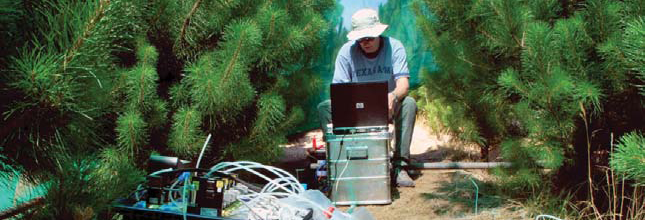Carbon exchange

Our research provides robust measurement and modeling tools to quantify and forecast sources and sinks of carbon dioxide (CO2), and the effects of land-use change and management on land-atmosphere CO2 exchange at multiple scales in New Zealand’s key terrestrial systems.
Studies include net emissions from pastoral agricultural systems and the ability of New Zealand’s indigenous and exotic forests (including shrubland) to offset emissions by acting as a “sink” for carbon dioxide.
Current projects are:
- Quantifying the net exchange of carbon dioxide in natural and managed grassland and forest systems, including variation in above- and below-ground processes and the effects of land-use change and management
- Quantifying the key processes regulating the net exchange of carbon dioxide in terrestrial systems at site scales, and the sensitivities and uncertainties of these processes to variation in climate, environmental and land-use variables
- Developing, testing and validating process-based models to quantify the key processes regulating net exchange of carbon dioxide, methane and nitrous oxide in terrestrial systems at site/paddock scales, including effects of variation in climate, environmental and land-use variables.
Results of this research will determine the extent to which carbon stored in vegetation may be used to offset agricultural emissions of methane and nitrous oxide, and will enable improved prediction and verification of New Zealand’s net greenhouse gas emissions under a range of climate and land-use scenarios.
